Hay Festival Digital Querétaro 2020
Hay Festival Digital Queretaro 2020 has finished. You can see all the events on the Hay Player, our online archive containing the audio and video of the events from all the Hay Festivals.
Event 22
Eduardo Matos Moctezuma and Patricia Ledesma in conversation with Ayelén Oliva
Hay Festival Constellations: archaeology
Cineteca Rosalío Solano
Read moreHay Festival Constellations creates a space for intergenerational dialogue within the Mexican cultural scene, in fields such as literature, film, music, science and architecture. To understand the present, it is necessary to understand the past, and in this regard we owe to Eduardo Matos Moctezuma much of Mexico’s current identity. Together with Patricia Ledesma, this event examines that history in order to think about what has made us. The past and the present will come into dialogue here, in a conversation moderated by Ayelén Oliva.

Event 23
Nacho Lozano in conversation with Nena Mounstro
Deconstruct your macho side
Jardín Guerrero
Read moreHow can we stop being macho? The journalist Nacho Lozano has written Macho menos, aimed at those men who want to deconstruct themselves, in order to open the way to new masculinities. This is a book that also incorporates women’s voices in order to shed light on some of the more questionable aspects of men’s behaviour.
LSM Mexican sign language interpretation available

Event 24
Olivia Rosenthal in conversation with Javier García del Moral
Museo de la Ciudad (espacio escénico)
Read moreOlivia Rosenthal (France) is a writer whose work fuses fiction, essay and personal testimony. For Que font les rennes après Noël?, which examines our relationship with animals and the domestication of emotional feeling, she interviewed several people who work with animals. In On n’est pas là pour disparaître, she reconstructs the case of a man suffering from Alzheimer’s who attacks his wife, and confronts us with the fragility of identity and personal links.
Simultaneous interpretation from French to Spanish available
With the support of the French Embassy in Mexico
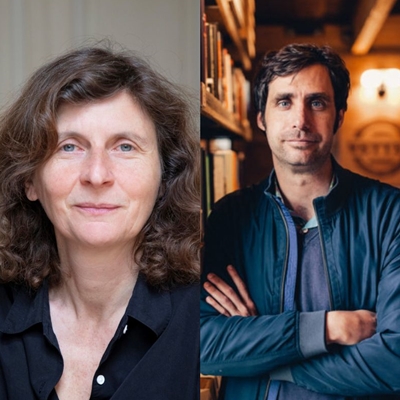
Event 25
Janet Martínez, Andrea Rizzi and John Vaillant in conversation with Francesco Manetto
The United States of the Americas
Museo de la Ciudad (sala 2)
Read moreMexico, the USA and Canada share more than borders: migratory policies, the climate emergency and common challenges. The relationships among the three countries have not always been stable, and according to who is in power, changes in course occur. Three experts will talk about the urgency of building bridges among the three nations: John Vaillant (USA/Canada), a witness to the ecological disaster; Andrea Rizzi (Italy), Global Affairs Correspondent for El País, and the Mexican journalist Janet Martínez. They will be joined by Francesco Manetto, journalist of El País América.
Consecutive interpretation from English to Spanish available

Event HFC20
Workshop with Jemima Peláez
Biciteca Akari
Centro Cultural Gómez Morín (salón 5A, planta baja)
Read moreThere is a mobile library on two wheels that has over two hundred stories and books, and which can become a space for sharing literature. With reading-matter for all ages, the Biciteca Akari promotes social inclusion, creativity and socio-emotional education through sharing stories. At this event with Jemima Pelaez we can see the Biciteca Akari for ourselves, exploring tales that help to boost identity, self-esteem and acceptance, aiming for each participant to take away a new view on harmony and inclusion.

Event HFC21
Event with Adolfo Córdova and Mariela Sancari
Ana everywhere
Alameda Hidalgo
Read moreAn event for children about falling in love, and first loves, based on Ana en todas partes. The writer Adolfo Córdova and the artist Mariela Sancari will talk about this self-fiction novel that mingles the author’s own experiences with those of over a hundred children, revealed through interviews. A space for talking about love with children and teenagers.

Event 25B
Daniel Mordzinski and Juan Gabriel Vásquez in conversation with Cristina Fuentes La Roche
Passion for literature
Cineteca Rosalío Solano
Read more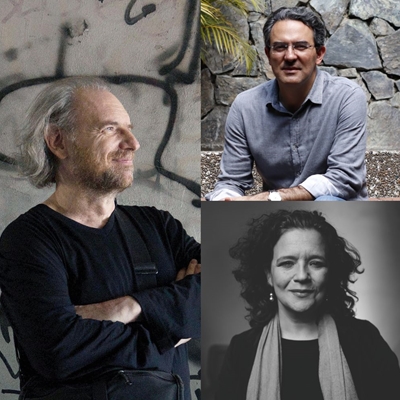
Event HFC22
Workshop with Elisa Guerra
A book without words
En el Semáforo se Aprende
Read more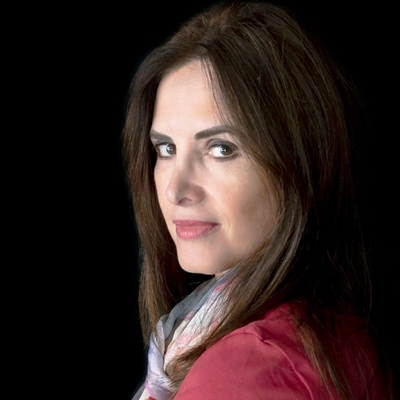
Event HFC23
Event with Rebeca Mendoza
Ernestina, the little witch
Alameda Hidalgo
Read moreThe Queretaro writer Rebeca Mendoza has created a very charming witch, who has gone down a storm among young readers. After the impressive success of Ernestina, una brujita miedosa,comes Ernestina, un sueño hecho realidad, in which our favourite witch becomes human to go to school and make new friends. Are you ready for a new magic adventure?
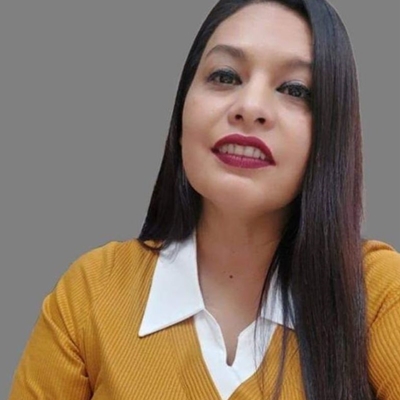
Event 26
Carmen Aristegui and Miriam Ramírez in conversation with Daniel Pardo
Hay Festival Constellations: journalism
Teatro de la Ciudad
Read moreHay Festival Constellations creates a space for intergenerational dialogue within the Mexican cultural scene, in fields such as literature, film, music, science and architecture. Truth, ethics and the urge to tell us the facts are all a part of good journalism. Carmen Aristegui and Miriam Ramírez will dialogue about the current state and value of a profession that has gone from being seen as «the Fourth Estate», to being mistrusted and even vilified by certain discourses and some sectors of society.
LSM Mexican sign language interpretation available

Event 27
Michel Nieva in conversation with Eduardo Rabasa
Future hacking: science fiction and neoliberalism
Cineteca Rosalío Solano
Read moreMichel Nieva (Argentina) is a creator of gaucho-punk, which fuses the gauchesca tradition with the cyberpunk genre. In Ciencia ficción capitalista he draws our attention to the capitalist fantasies of the technological gurus. This essay explores how the language of science fiction has been kidnapped by the neoliberal ideas of Bezos, Musk, Zuckerberg and co. In conversation with Eduardo Rabasa.
With the support of Open Society Foundations, South to North conversations
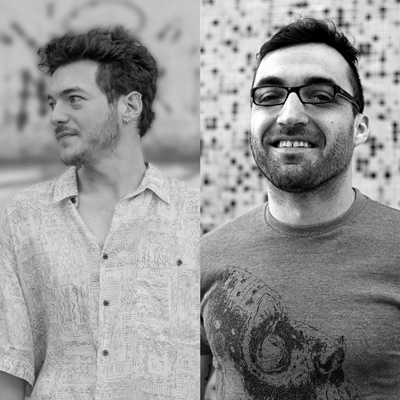
Event 28
Fernando Benavides in conversation with Paula Rosas
True crime, from podcast to novel
Jardín Guerrero
Read moreMix a few drops of murder, disappearance, political investigation and unsettling theories, and stir in some vigorous narrative rhythm and a great sense of story, and you have all the ingredients that have made Fausto, the true-crime podcast by Fernando Benavides (Mexico), the most listened to in Latin America. On this occasion, he presents the novel La vulnerabilidad del azar, a work written in his characteristic style: based on a real case, with multiple murders, and the resulting police investigation.
LSM Mexican sign language interpretation available
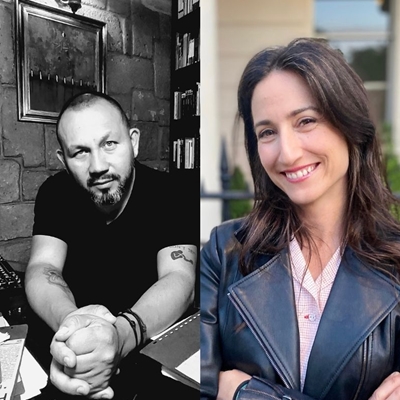
Event 29
John Vaillant in conversation with Cristina Fuentes La Roche
Museo de la Ciudad (espacio escénico)
Read moreJohn Vaillant (USA/Canada) won the Baillie Gifford Prize for Non-fiction for Fire Weather, a book about the terrible forest fire that burned Fort McMurray, the centre of the Canadian oil industry. In this brilliant work, Vaillant argues that it was not just a fire, but a warning that we need to prepare for an ever hotter and more inflammable world. In conversation with Cristina Fuentes La Roche.
Simultaneous interpretation from English to Spanish available

Event 30
Mar García Puig and Mariana Matija in conversation with Felipe Rosete
Reconnections
Museo de la Ciudad (sala 2)
Read moreMar García Puig (Spain) and Mariana Matija (Colombia) advocate for a reconnection with fundamental aspects of our existence, from different perspectives. In her book, Això tan tenebrós, García Puig presents an argument in favour of the complexity of metaphors and the darkness, as against the prevailing literalness and desire for purity; in her work of non-fiction Niñapájaroglaciar, Matija looks to a more aware and harmonious relationship with nature.
With the support of Instituto Ramón Llull
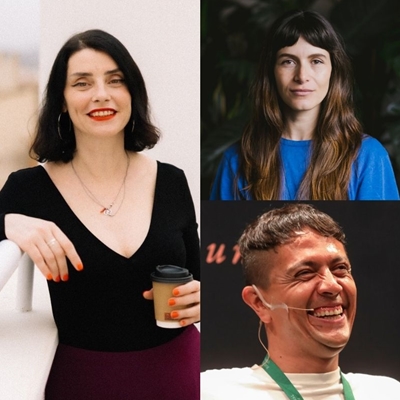
Event 31
Gina Jaramillo and Patricia Vázquez del Mercado in conversation with Bárbara Arredondo
Universum: learn about science through play
Patio de la Delegación del Centro Histórico
Read moreThe UNAM’s Museum of Science has created Universum, a space for children to learn about science through curiosity and play. Gina Jaramillo and Patricia Vázquez del Mercado will discuss the museum’s new proposal, a pioneer in Mexico due to its accessible and inclusive approach, and because of the cooperation between the public and private sectors involved. In conversation with Bárbara Arredondo.
Sponsored by CAF
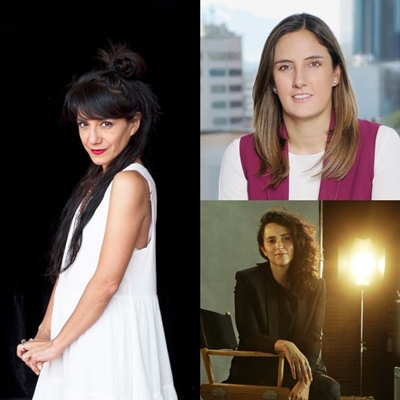
Event 32
Elvira Sastre in conversation with Alberto Villarreal
Tequisquiapan, Plaza principal
Read moreElvira Sastre has managed to achieve the improbable: bring poetry to thousands of young people. Using a familiar approach and subject matter that is relevant to their lives, she has connected with various generations of readers, keeping alive the spark of literary sensitivity.
With the support of Acción Cultural Española, AC/E

Event 33
Andrés Cota Hiriart in conversation with José María Herrera Marquina
The axolotl, an emblematic creature
Pinal de Amoles, Kiosko Municipal
Read moreThere is a real-life monster that lives underwater, able to regenerate its limbs and which is always young. This is the amphibian known as the axolotl, and it is… Mexican! In this fascinating conversation together with José María Herrera Marquina, the Mexican biologist and writer Andrés Cota Hiriart will tell us anecdotes, curiosities and surprising information about this small and mysterious animal that always seems to be smiling.
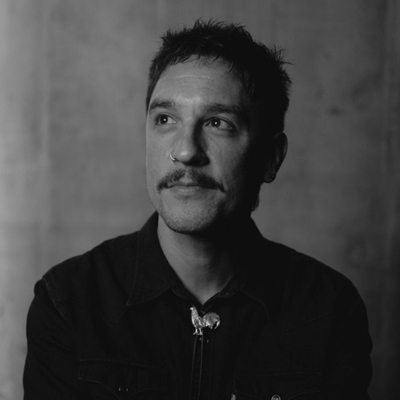
Event HFC8
Nacho Lozano in conversation with Israel Nieves
Deconstruct your macho side
La Otra Bandita
Read moreHow can we stop being macho? The journalist Nacho Lozano has written Macho menos, aimed at those men who want to deconstruct themselves, in order to open the way to new masculinities. A book that, while still about listening to women, talks about the behaviour of men. In conversation with Israel Nieves.

Event 34
Lol Tolhurst in conversation with Sopitas
Gothic pride
Teatro de la Ciudad
Read moreIn his most recent book, Goth, the legendary founding member of The Cure, Lol Tolhurst (United Kingdom) returns to his origins: the music scene of the late 70s and early 80s, years when new bands were arriving: Siouxsie and the Banshees, Bauhaus, Joy Division and, of course, The Cure. This work records the channelling of a force that goes beyond music: a community, a feeling of belonging, and something that meant the shadows and darkness –and those basslines– became a light that drew people together.
Simultaneous interpretation from English to Spanish available
With the support of British Council
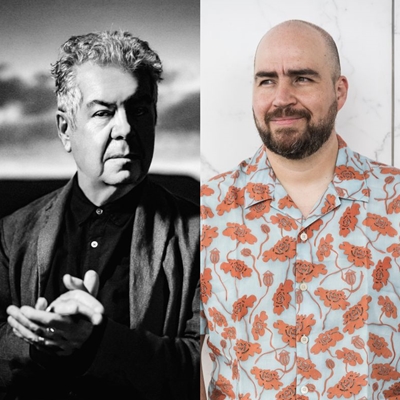
Event 35
Pedro Baños in conversation with Javier Solórzano
Spanish-speaking America on the geopolitical map
Cineteca Rosalío Solano
Read morePedro Baños (Spain), a reserve colonel and geopolitical analyst, is one of the most influential thinkers on strategy and international relations in the Spanish-speaking world. In his latest book, Geohispanidad, he considers a geopolitical strategy to unite Spanish-speaking countries and strengthen their global influence. He will talk to Javier Solórzano about the new alliances that are being forged, and they geopolitical map that is taking shape today.
Sponsored by CAF
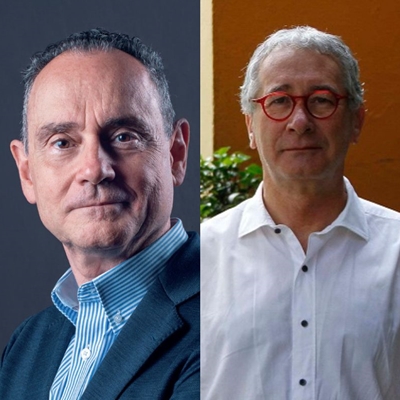
Explore All Genres
- Afrodescendencias
- Constelaciones Hay Festival
- South to North
- Architecture
- Art
- Arts & Culture
- Children
- Comedy
- Crime
- Culture
- Drawing
- Education
- Equality
- Family
- Film
- Gender
- Heritage
- History
- Human Rights
- Journalism
- Language
- Literature
- Music
- Nature & Environment
- Performance
- Photography
- Podcast
- Poetry
- Politics
- Psychology
- Science
- Technology
- War
- World Affairs
Principal Sponsor
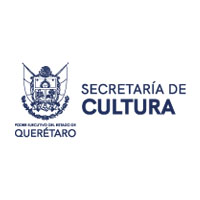
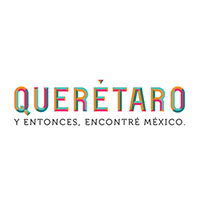


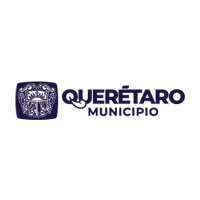

Partner for Latin America

